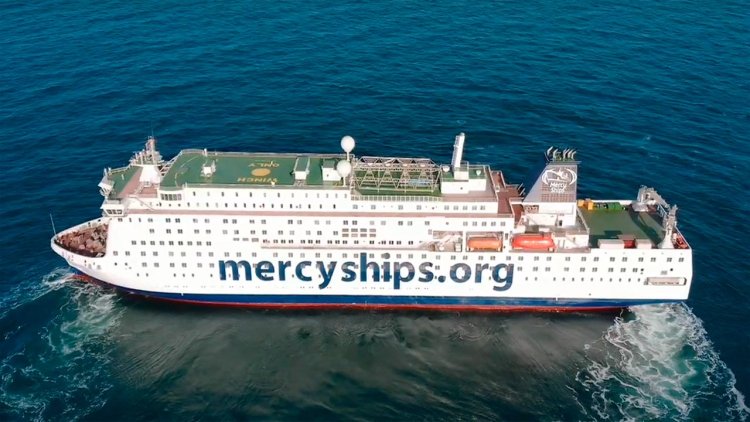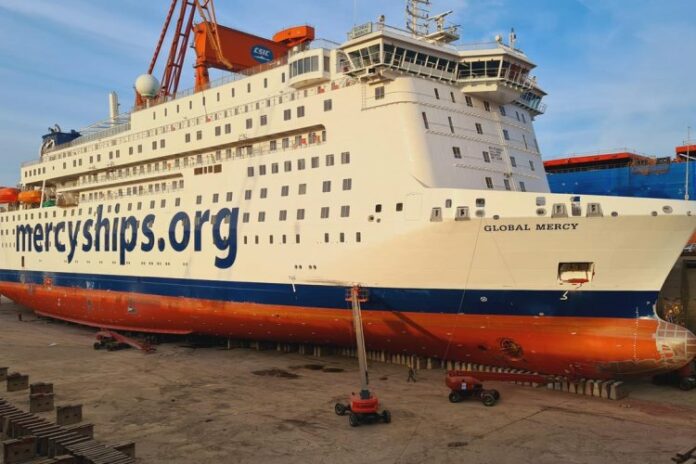Biotech antifouling specialists, I-Tech AB, has announced the performance of its barnacle-repelling active ingredient, Selektope® after an eight-month period in outfitting of the world’s largest civilian hospital ship, Global Mercy™.
In May 2021, Global Mercy completed its sea trial with good results. After extended static period during outfitting, exposed to high risk of fouling, I-Tech found that the vessel showed some signs of fouling on the propellers, however the vessel’s hull was completely free from barnacle growth.
Built by Xingang shipyard in Tianjin, China, with Stena RoRo appointed by Mercy Ships as the project manager, Global Mercy’s hull was coated with two layers of Jotun’s SEAQUANTUM PRO ACE containing Selektope® – an organic, non-lethal, metal-free active agent that is added to marine antifouling paints to prevent barnacles from settling on coated surfaces by temporarily activating the swimming behaviour of barnacle larvae. The bio-repellent effect makes Selektope® the only type of technology of its kind available to marine paint manufacturers today.
During construction, I-Tech worked with leading innovators of the roll on/roll off cargo and passenger concepts, Stena RoRo, to identify Selektope® as the most suitable, innovative technology to ensure that the hull of the new hospital ship would not suffer from the negative effects of barnacle fouling – even during long periods of idling in high-risk areas.
Excess amounts of marine fouling can lead to increased drag, resulting in reduced overall engine efficiency affecting speed, power, performance, and fuel consumption, in addition to costs associated with drydocking the ship to mechanically remove hard fouling, if required.

Embarking on its first mission in early 2022 to the west coast of Africa, the nature of the voluntary aid Global Mercy will provide means that the hospital ship is expected to be stationary in warm water ports for long periods of time, up to as long as 10 months. These extended periods at anchor can put vessels at a heightened risk of barnacle colonisation, according to I-Tech’s recent idling study released earlier this year, which found that ships located in medium or warm waters were at a higher exposure to marine growth.
Commenting on the result after vessel delivery, Philip Chaabane, CEO at I-Tech, said:
“The mission of Mercy Ships is vitally important for people in need of medical attention in some of the world’s poorest countries. I-Tech, grateful of the important work performed by Mercy ships, have decided to donate the Selektope® required in the hull coating. Our fast-growing technology, with its heritage in the scientific research domain, is a perfect fit for this ship and its operating pattern. We are proud partners to the Mercy Ships organization and grateful for the work they do to help humanity.”
“Barnacle fouling can be detrimental to the efficiency and maintenance of vessels, increasing costs and emissions in a market which cannot afford either. Therefore, it is important for vessel owners and operators to ensure that vessels are in some way protected, especially when idle for long periods of time.”
Stefan Soneson, National Director, Mercy Ships Sweden, added:
“Mercy Ships is known for its extensive sustainability profile, and I-Tech’s donation in support of our assignment further contributes to being able to carry out our work in a more sustainable way. The use of the latest technological innovations to protect Global Mercy against fouling during static conditions is of great importance to us.”



